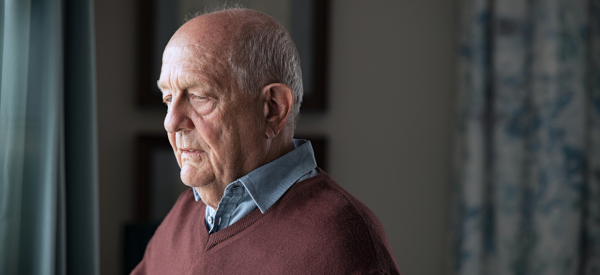Elder care planning involves a plan of action that not only involves communicating an older loved one’s choices in their personal, physical and financial matters, but also aids family members, caregivers and advocates in helping them plan the final years of life. Although it may be a difficult conversation to have, the long-term care and comfort of your loved one is something that should be discussed and planned out by everyone involved out well in advance. Because there are so many important topics to cover – from money management, home care agencies and senior assisted living, to retirement income, savings and
Read More
Archives for Freedom Home Care
Winterize to Prevent Falls
When the winter weather comes, safe paths can become treacherous. Slick surfaces pose new hazards and everyone has to get a little more careful. Each year, it’s estimated that about one in every four adults over 65 years will fall, with nearly 2.8 million seniors needing treatment in emergency departments. Don’t let the winter be at fault for a fall, instead take the following tips to winterize and prevent falls from happening. Get Your Gear In Order The first order of business is making sure proper footwear is on hand. Shoes with firm soles and good traction are optimal
Read More
What You Need to Know About Communicating and Working With Alzheimer's Patients
Living with the effects of Alzheimer’s on a daily basis can be challenging for both patients and their caretakers. And communicating with a loved one who has the disease can also take a significant toll on your relationship if you’re not clear on how Alzheimer’s impacts the way your senior relates to others. What many family members may not know about a loved one suffering from the disease is that Alzheimer’s can cause significant damage to the neural pathways in the brain. The brain’s neurons are responsible for sending messages back and forth to different parts of the body. Alzheimer’s interrupts this process, leaving
Read More
Caregiving is Not Just for Women
Most of the time when we think of a caregiver, we imagine a woman in her late 50s or 60s taking care of a parent or spouse who has mobility issues, a medical condition or serious illness. But today, there are a surprising number of men who have taken on the role as caregiver. It’s becoming more common to see a 47-year-old male caring for his 68-year-old female relative with a long-term physical condition, according to the AARP.com. In fact, 40 percent of Americans caring for another friend or family member are male. With so many men taking on a “traditional female role” why is this phenomenon still
Read More
How To Care For a Loved One After Surgery
Depending on the procedure, having surgery can be a pretty stressful experience. As caretakers, we’re often concerned about the things that need to be done in preparation of the surgery, how well the procedure goes and what to expect afterward. The healing process itself can be daunting and one that requires a lot of time and assistance from loved ones to aid in a successful recovery. If you’re a caretaker and your senior has just undergone surgery, here are a few things Freedom Home Care found that you can do to relieve the anxiety of caring for someone during their recovery. Ask the Doctor about the Procedure Every surgery requires
Read More
How To Help Alzheimer's Patients Enjoy Life
Most people with Alzheimer’s would agree that one of the unfortunate effects of the disease is its ability to rob them of their quality of life. And what one person considers “quality of life” may not be same as the next person. Some may lose the ability to remember or make sound choices and decisions, while others might experience a decline in their physical or emotional health. There are older loved ones who may not have the desire to participate in activities or do the things that they used to do like attending religious services, going to sporting events or dating and
Read More
Things To Do If Arthritis Meds Don't Work
As more and more Americans transition into their golden years, the number of people suffering from chronic arthritis increases along with them. But it doesn’t end there. Many of those who experience the painful effects of osteoarthritis know that often times medication prescribed by doctors doesn’t completely relieve them of pain. For some older loved ones, medication just isn’t enough. Many times, prescription drugs come with side effects that are concerning to those who take them. And because of that, a growing number of seniors are turning to other practices for relief. By combining alternative methods and natural remedies with
Read More
National Senior Citizen Fitness Day – May 31st
On May 31st more than 100,000 seniors will become part of one of the nation’s largest annual health promotion events for the elderly – National Senior Health & Fitness Day. With a goal of encouraging seniors to stay health and in shape, older loved ones all over the country will be descending upon more than 1,000 locations in celebration of the 24th annual senior fitness event. A public-private partnership coordinated by the Mature Market Resource Center, National Senior Health & Fitness Day, is hosted by local organizations advocating the health and fitness of older adults. By purchasing a registration packet, any group
Read More
Ways to Care for Parent or Spouse with Technology
Statistics show that more than 75 percent of the wealth in the United States is controlled by people over 50. The irony in that fact is that according to the Pew Research Center, 92 percent of young people aged 18-29 own a smart phone, while 74 percent of people aged 50-64 own one as well as 42 percent of those aged 65 and older. But to be fair, 97 percent of Americans in the 50-65 or older age group and 80 percent of seniors aged 65 and older own a cell phone of some type. This means that although most
Read More
Financial Tips for Caregivers
As more and more loved ones begin to reach their Golden Years, the number of caregivers needed to provide support for them continues to decline, according to aarp.com. And today, many Baby boomers are finding their roles changing faster than ever before. Statistics show that more than 25 percent of boomers in the U.S. are making the transition from child to caregiver and may not be fully prepared for the change. Maybe an older loved ones has been diagnosed with a long-term condition like Parkinson’s or dementia. Maybe they’ve had surgery or are facing a major life change and have to rely on the
Read More




